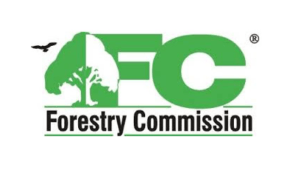Report on forest cover loss inaccurate – Forestry Commission
 The Forestry Commission has described as inaccurate a report by the World Resources Institute (WRI) claiming that Ghana witnessed a 60 per cent change in forest cover loss between 2017 and 2018.
The Forestry Commission has described as inaccurate a report by the World Resources Institute (WRI) claiming that Ghana witnessed a 60 per cent change in forest cover loss between 2017 and 2018.
The Commission, in a statement, said the methodology used by the WRI to reach the conclusion was erroneous and did not capture the exact situation on the ground.
“The WRI report indicates a 60 per cent change in loss and not a 60 per cent loss of forest cover in one year (2017-2018).
A further interrogation of the original research data, however, indicates this figure to be 31.3 per cent,” it said.
“We wish to state that the conclusions arrived at in the publication are based on a faulty methodology as well as a misunderstanding of current controlled agricultural practices in Ghana.”
The Commission said the WRI report looked at tree cover and not forest cover.
While the Commission acknowledges that negative farming practices and illegal mining contributed to deforestation and forest degradation, it said everything was being done to reverse the trend.
It said within a six-year period, from 2012 to the end of 2018, there was a marginal increase of 1.96 per cent in the country’s forest cover from 6,235,102.32 hectares to 6,357,876.03 hectares at the end of 2018.
“The Forestry Commission holds on to its mission to sustainably develop and manage Ghana’s forest and wildlife resources. It will, therefore, continue to engage in forest improvement and protection activities to restore Ghana’s forest cover,” the statement said.
“Ghana is, indeed, not alone in this fight to keep the forest heritage for the present and future generations. A number of initiatives has, accordingly, been put in place to address this challenge.”
In this direction, the statement said the Forestry Commission had put in place a lot of interventions to improve forest cover.
These include REDD+, an internationally accepted mechanism to combat climate change, which implements Climate Smart Cocoa Practices among other things, setting up of rural service centres for easy access to farm inputs; and increased cocoa extension services and replanting of old cocoa farms.
The private sector and the Government had also signed onto the Cocoa and Forests Initiative to halt deforestation in the chocolate and cocoa supply chains by promoting climate-smart cocoa practices.
The country has also signed onto the Voluntary Partnership Agreement (VPA) with the European Union to help combat illegal logging, under which Ghana was strengthening its law enforcement capacity by developing a robust wood traceability system.
There is also the Youth in Afforestation Programme that employed more than 60,000 youth to help in afforestation throughout the country.
Since its inception in April 2018, this had culminated in the planting of over 22,000 ha.
The Commission had also engaged the private sector in plantations development and as at the end of 2018, over 50,000 hectares have been planted.
“The increase in the open forest is attributable to the on-going plantation development drive, both public and private, as well as the regeneration stimulated by the opening up of the closed forest,” the statement said.
Source: GNA
